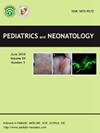在怀孕期间或怀孕后补充胆碱是否能改善儿童的神经认知发育?一个荟萃分析。
IF 2.1
4区 医学
Q2 PEDIATRICS
引用次数: 0
摘要
背景:酒精损害早期认知发育,尤其是在子宫内。营养补充可以避免一些后果。目的:我们回顾了产前和产后补充胆碱是否可以改善酒精暴露妊娠儿童的神经认知发育。方法:在Medline、Embase和Cochrane图书馆数据库中进行系统的文献检索,以确定截至2024年5月1日发表的随机对照试验。数据分析采用95%置信区间(CI)的标准化平均差(SMD)和随机效应模型。采用贝叶斯马尔可夫链蒙特卡罗模型计算灵敏度分析和后验获益概率。结果:本综述纳入了5项试验。产前补充营养可能有益于记忆(SMD 0.61, 95% CI 0.19至1.02;Pr(SMD>0) = 96.29%;I2 = 0%;2试验;94名参与者;moderate-certainty证据)。产后补充剂可改善整体认知(SMD = 0.78, 95% CI = 0.21 ~ 1.34;Pr(SMD>0) = 96.94%;I2 = 13%;2试验;62名参与者;低确定性证据)和注意力的小益处仅在贝叶斯分析中得到证实(出生后:SMD 0.44, 95% CI -0.73至1.61;Pr(SMD>0) = 91.80%;I2 = 84%;2试验;83名参与者;确定性的证据)。结论:在任何时期补充胆碱都有利于重度饮酒母亲的儿童的神经认知发育。注册:CRD42024537733(普洛斯彼罗)。本文章由计算机程序翻译,如有差异,请以英文原文为准。
Does supplementation of choline during or after pregnancies exposed to alcohol improve neurocognitive development of children? A meta-analysis
Background
Alcohol impairs early cognitive development, especially in utero exposures. Nutrient supplementation may avert some of its consequences.
Objective
We reviewed whether prenatal and postnatal choline supplementation could improve neurocognitive development in children of alcohol-exposed pregnancies.
Methods
A systematic literature search was conducted in Medline, Embase, and Cochrane Library databases to identify randomized controlled trials published up to May 01, 2024. Data were analyzed using Standardized Mean Difference (SMD) with 95 % Confidence Intervals (CI) and a random-effects model. Sensitivity analyses and the posterior probability of benefit (Pr) were calculated using a Bayesian Markov chain Monte Carlo model.
Results
Five trials were included in this review. Prenatal supplementation likely benefits memory (SMD 0.61, 95 % CI 0.19 to 1.02; Pr(SMD>0) = 96.29 %; I2 = 0 %; 2 trials; 94 participants; moderate-certainty evidence). Postnatal supplementation may improve global cognition (SMD 0.78, 95 % CI 0.21 to 1.34; Pr(SMD>0) = 96.94 %; I2 = 13 %; 2 trials; 62 participants; low-certainty evidence) and a small benefit to attention was only demonstrated in the Bayesian analysis (postnatal: SMD 0.44, 95 % CI -0.73 to 1.61; Pr(SMD>0) = 91.80 %; I2 = 84 %; 2 trials; 83 participants; low-certainty evidence).
Conclusion
Supplementation of choline in either period could benefit neurocognitive development in children of heavy-drinking mothers.
Registration
CRD42024537733 (PROSPERO).
求助全文
通过发布文献求助,成功后即可免费获取论文全文。
去求助
来源期刊

Pediatrics and Neonatology
PEDIATRICS-
CiteScore
3.10
自引率
0.00%
发文量
170
审稿时长
48 days
期刊介绍:
Pediatrics and Neonatology is the official peer-reviewed publication of the Taiwan Pediatric Association and The Society of Neonatology ROC, and is indexed in EMBASE and SCOPUS. Articles on clinical and laboratory research in pediatrics and related fields are eligible for consideration.
 求助内容:
求助内容: 应助结果提醒方式:
应助结果提醒方式:


